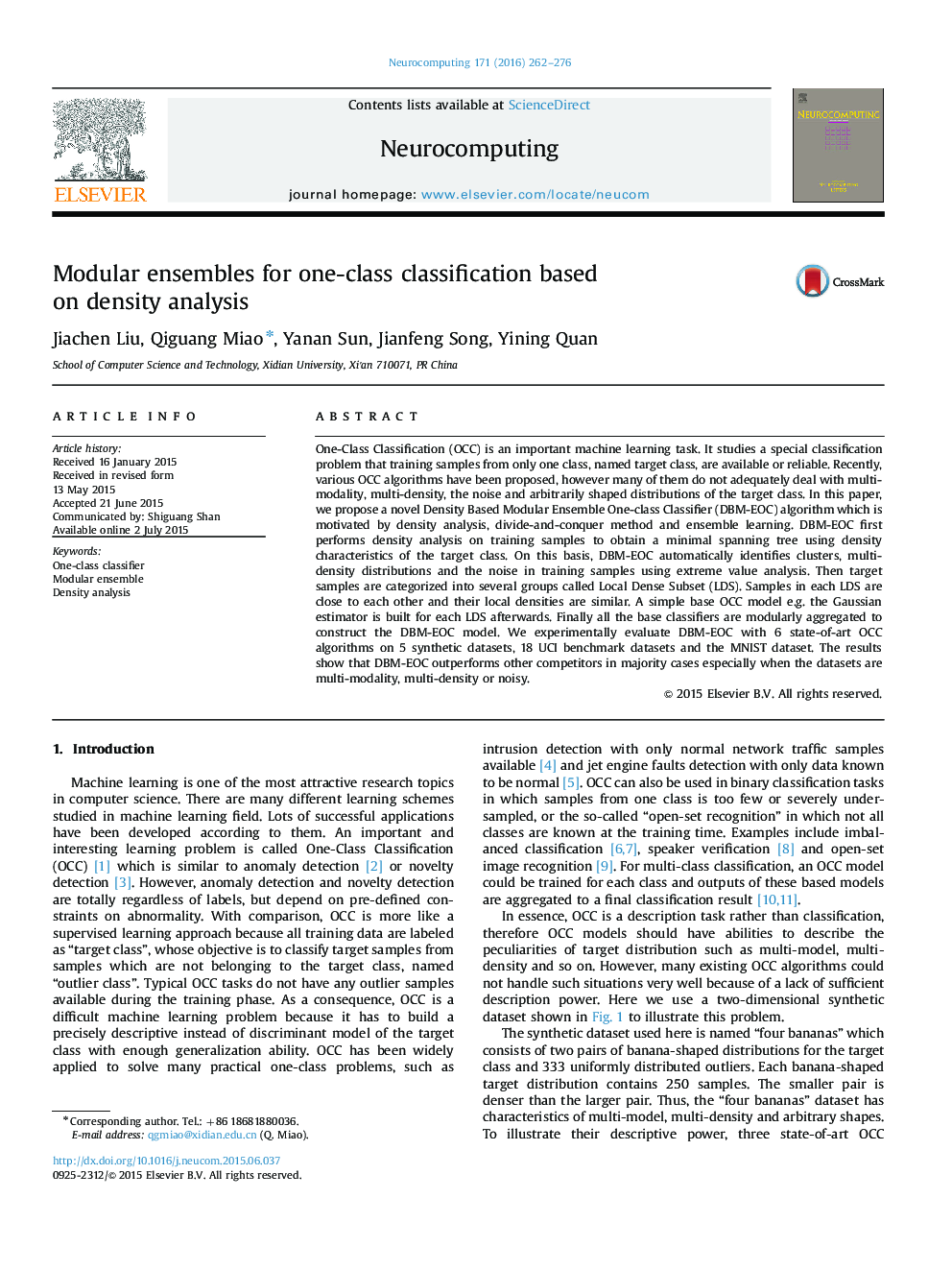| Article ID | Journal | Published Year | Pages | File Type |
|---|---|---|---|---|
| 407403 | Neurocomputing | 2016 | 15 Pages |
•We propose a modular ensemble OCC algorithm DBM-EOC based on density analysis.•We analyze peculiarities of the target class which are crucial for OCC.•DBM-EOC obtains a tree structure of the target class considering density.•DBM-EOC can automatically detect clusters and remove noise samples.•DBM-EOC solves OCC problems with the divide-and-conquer method.
One-Class Classification (OCC) is an important machine learning task. It studies a special classification problem that training samples from only one class, named target class, are available or reliable. Recently, various OCC algorithms have been proposed, however many of them do not adequately deal with multi-modality, multi-density, the noise and arbitrarily shaped distributions of the target class. In this paper, we propose a novel Density Based Modular Ensemble One-class Classifier (DBM-EOC) algorithm which is motivated by density analysis, divide-and-conquer method and ensemble learning. DBM-EOC first performs density analysis on training samples to obtain a minimal spanning tree using density characteristics of the target class. On this basis, DBM-EOC automatically identifies clusters, multi-density distributions and the noise in training samples using extreme value analysis. Then target samples are categorized into several groups called Local Dense Subset (LDS). Samples in each LDS are close to each other and their local densities are similar. A simple base OCC model e.g. the Gaussian estimator is built for each LDS afterwards. Finally all the base classifiers are modularly aggregated to construct the DBM-EOC model. We experimentally evaluate DBM-EOC with 6 state-of-art OCC algorithms on 5 synthetic datasets, 18 UCI benchmark datasets and the MNIST dataset. The results show that DBM-EOC outperforms other competitors in majority cases especially when the datasets are multi-modality, multi-density or noisy.
